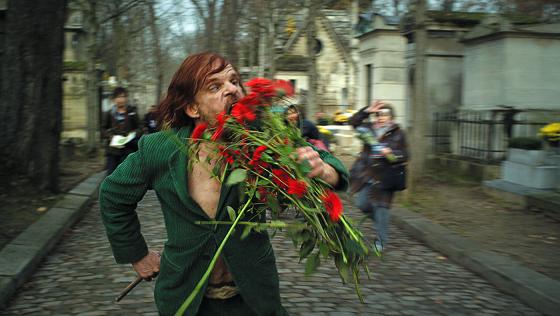


 
 |
| Photo © 2012 Pierre Grise Productions/Théo Films/Pandora Filmproduktion/ARTE France Cinéma |
| Awards: | |
| Cannes Film Festival: Prix de la jeunesse | |
| Chicago International Film Festival: Golden Hugo (Best Picture); Best Actor (Denis Lavant); Best Cinematography (Yves Cape and Caroline Champetier) | |
| Permalink | Home | 2012 | ABC | Blog |